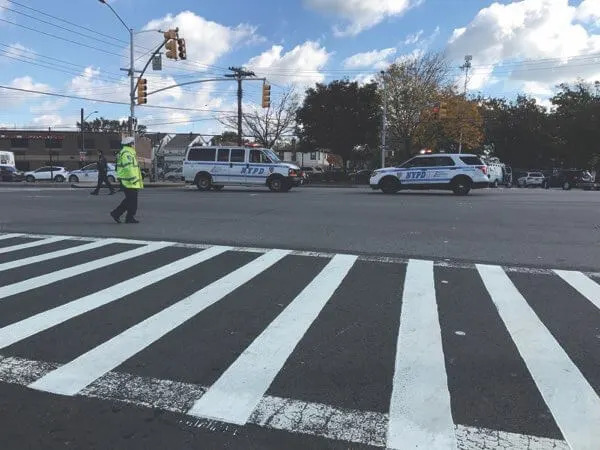By Kathianne Boniello
The city’s mosquito control plan to contain the spread of the West Nile virus this summer skirts the often-controversial issue of pesticide spraying in the five boroughs by focusing on killing the insects before they grow to adulthood.
Since the West Nile virus was first discovered in Queens in 1999, the city has used pesticides to reduce the mosquito population that spreads the sometimes fatal infection. The pesticides have sparked the ire of environmentalists who protested against the potential harm of aerial spraying of the chemicals.
Prevention was the direction of the 2001 campaign announced by Mayor Rudolph Giuliani and a host of other city officials at a news conference last Thursday.
“As the weather gets warmer and the mosquito season gets underway, I am asking all New Yorkers to eliminate potential mosquito breeding sites around their homes and businesses,” Giuliani said.
In 1999 the West Nile virus was found for the first time in the Western Hemisphere in College Point. The virus killed four people in the borough last year and sickened dozens of others. In 2000, eight human cases were documented, although none were in Queen.
The city’s 2001 plan calls for eliminating standing water where mosquitoes breed and applying larvicide to wastewater treatment plants, parks, sewers, and 150,000 catch basins around the city where water cannot be removed. Larvae eating fish will also be used to remove infant mosquitoes in waste water treatment plants.
Businesses and homeowners that do not eliminate standing water trapped in buckets, old tires, unused swimming pools, clogged gutters and other containers on their properties can also be fined this year, the city said.
The city said it will hold off using pesticides to control the spread of the virus unless it finds a significant threat to human health.
The city will also monitor mosquitoes, birds and other animals for signs of the West Nile virus. This year marks the first time the city will be able to test mosquitoes for West Nile in its own laboratories as opposed to sending the insects to upstate facilities.
The city Department of Health said it will monitor mosquito breeding sites weekly, collect the insects from 90 sites throughout the city regularly and expand mosquito trapping where birds and other animals are found to carry the disease.
Dr. Neal Cohen, the commissioner of the Health Department, said “similar to our successful surveillance efforts last year, we will closely monitor West Nile viral activity in birds and mosquitoes and use these findings to guard against a possible human outbreak.”
The Health Department said it would continue the practice of collecting dead birds, especially crows and blue jays, to survey the spread of the virus. There were reports this week that two dead birds found in northern New Jersey had the West Nile virus.
West Nile is thought to be transmitted through birds, which are bitten by certain types of mosquitoes that transmit the virus to humans. Those especially vulnerable to the disease are the elderly, young children, and those with compromised immune systems.
In 2001 veterinarians are also being asked to report animals with suspected neurological illnesses to the city Health Department.
The city is also asking doctors to immediately report all possible cases of West Nile infection.
To control the spread of the virus, the city Health Department created a large surveillance system in 2000 which included about 120 mosquito traps around the city, 14 sentinel bird flocks, testing dead birds, and tracking certain hospitals around the city to monitor for human cases of the disease.
In 1999 the city used the pesticide malathion to control the mosquito population and inspired protest from various environmental groups who claimed the insecticide was carcinogenic.
Given the controversy surrounding the 1999 spraying campaign, this year the city Health Department switched to two different pesticides called Anvil and Scourge.
Reach reporter Kathianne Boniello by e-mail at Timesledgr@aol.com or call 229-0300, Ext. 146.






























